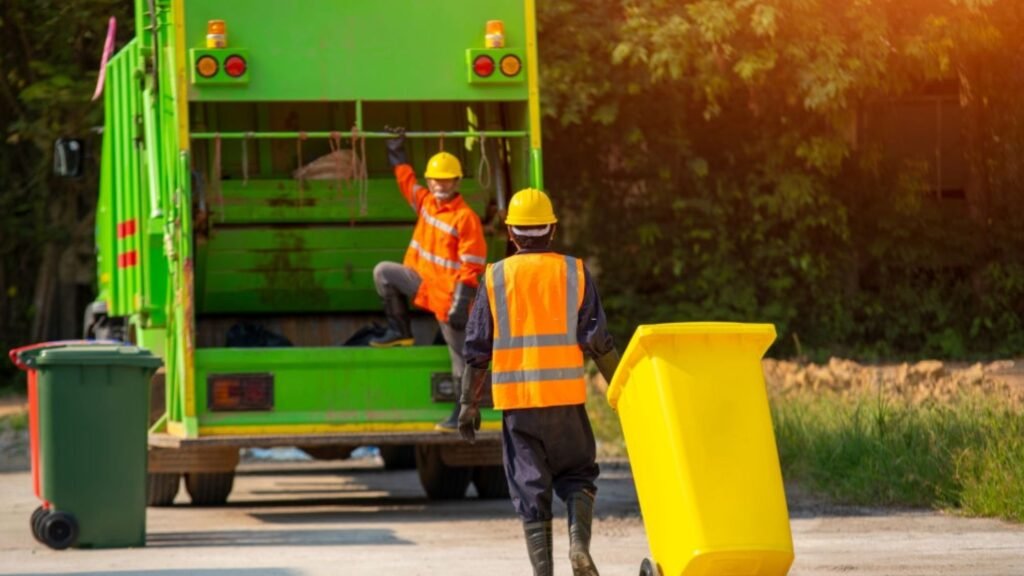Waste Management – Presently, the annual production of waste in the world exceeds 2 billion tonnes. Most of this garbage is disposed of in landfills, where it damages the surrounding ecology, emits toxic gases, and causes a host of problems for the environment and public health. Regretfully, this issue isn’t going away in the foreseeable future because, by 2050, it’s predicted that the world’s garbage output will have reached an astounding 3.4 billion tonnes.
Restructuring the waste management business to employ more intelligent, technologically advanced solutions is one of the best strategies to reduce the negative environmental effects of municipal solid waste. These cutting-edge procedures facilitate increased recycling rates and environmental benefits for individuals as well as businesses by streamlining collections, monitoring waste levels, and simplifying the recycling process. Search for Manchester skip hire if you live in Manchester and want to have a cleaner environment.
Smart Waste Management: What Is It?
In this case, the definition of intelligent waste management is the one that combines the use of technologies with the effectiveness, affordability, and environmental friendliness of garbage collection activities. To intensify garbage disposal and advance the development of future technologies, the majority of these processes are connected to the World Wide Web of Things (IoT), which is an information acquisition technology on par with the norms of surveillance tracking in real-time.
Intelligent Trash Cans:
One of the most cutting-edge smart waste management solutions on the market right now is a smart trash can. This intelligent waste container is a self-sorting trash can since it uses sensors and computational intelligence to recognize, sort, and compress material waste into manageable loads.
These trash cans employ sensors to automatically track and provide information on the amount of waste inside of them. The routes and timing of garbage collection services can therefore be improved with the use of this data, lowering the overall amount of waste produced.
Pello:
A new technology called Pello was created to assist companies in lessening their environmental effect and improving the way they handle organic waste collection. Pello offers a variety of solutions to assist small businesses in achieving these objectives. First off, the Pello system tracks the amount of waste in the containers you use and gives you up-to-date information on their position and contents. It also notifies you when an inspection is due and lets you know if the container has been compromised.
E-Waste Management Stations:
Improper disposal of electronic waste can result in toxic emissions that affect the health of people and the environment. E-waste recycling kiosks, which allow consumers to trade in their used electronics for cash at the location, have been installed in numerous places throughout the world as a means of addressing the problem.
Waste Level Indicators:
To get rid of their trash, homes and businesses all around the nation rely on regular waste management services. Although weekly services have remained in existence for many years, they frequently fail to be the best choice. Companies and municipalities can put garbage level sensors in dumpsters or garbage containers of any size to help reduce needless journeys to and from landfills.
By gathering and storing information concerning fill levels, these gadgets help collection agencies forecast how frequently bins are going to be emptied. This also lessens the chance of nearby areas becoming contaminated by emptying public containers.
Robots for Recycling:
Not usually for the best reasons, intelligent technology has been in the headlines a lot lately. However, the field of recycling is one where artificial intelligence might have a significant and positive impact. AI robots are already being used by numerous recycling centres; they may be trained to distinguish between various materials quickly and accurately.
Waste Management Pipes with Pneumatic Systems:
The practicality of traditional garbage disposal and collecting systems decreases with the growth and density of urban areas. The pneumatic wastewater pipe is one of the most technologically advanced solutions to this issue. Instead of waiting for a garbage pickup, waste can be transported directly to processing centres by installing pneumatic pipes beneath public trash cans.
Mechanisms for Weighing Garbage Trucks:
Garbage truck weighing mechanisms, similar to waste level sensors, can aid in fill level prediction and minimize collection trips. They accomplish this by weighing waste bins, storing the data, and utilizing it to forecast fill levels over an extended period. With the use of this kind of technology, cities may lower their annual collection expenses while also being able to precisely forecast how frequently they need to dispatch their trucks.

Final Words – Waste Management Tech:
When it comes to garbage management business processes, it is evident that smart solutions for waste management are the way of the future. This is because, as the state of the environment gets worse every day, their effectiveness and detrimental effects on the environment simply cannot be overlooked.
Keep visiting thesimplesource for more informative articles.





